A Trini helps Barbados with food
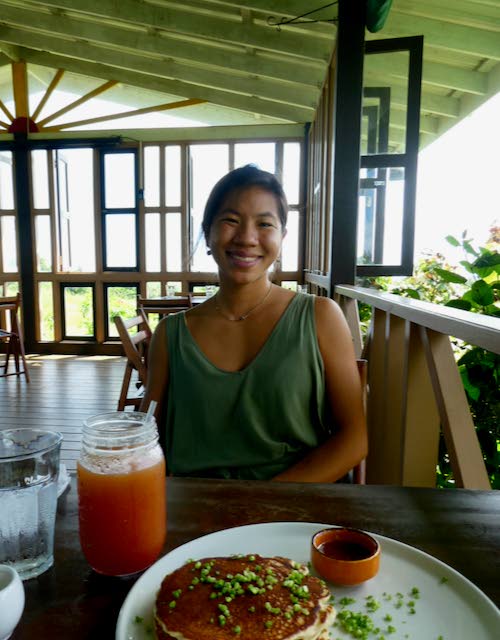
Regenerative agriculture is taking root in Barbados, and Trinis are part of the revolution. Pat Ganase takes a tour with Rheanna Chen who will soon return to Trinidad.
Rheanna Chen left Trinidad in 2018 for Italy. In her continuing mission to heal the world through food, she was headed to the University of Gastronomic Sciences in Pollenzo to pursue her masters in gastronomy, world food cultures and mobility. It was the path she charted with her first degree, a BSc in international agriculture development at the University of California at Davis; and continued at the Green Market Santa Cruz.
By the time she was ready to return from Italy in 2020, Trinidad’s borders were closed against covid19. The route became circuitous – through France to Martinique. She applied for an opening in Barbados and took that job. Programme co-ordinator at Slow Food Barbados, a registered charity founded in 2012 that seeks to lead the way in transforming the food system, provided yet another window of opportunity and education for Chen who intends to be back in Trinidad by year-end.
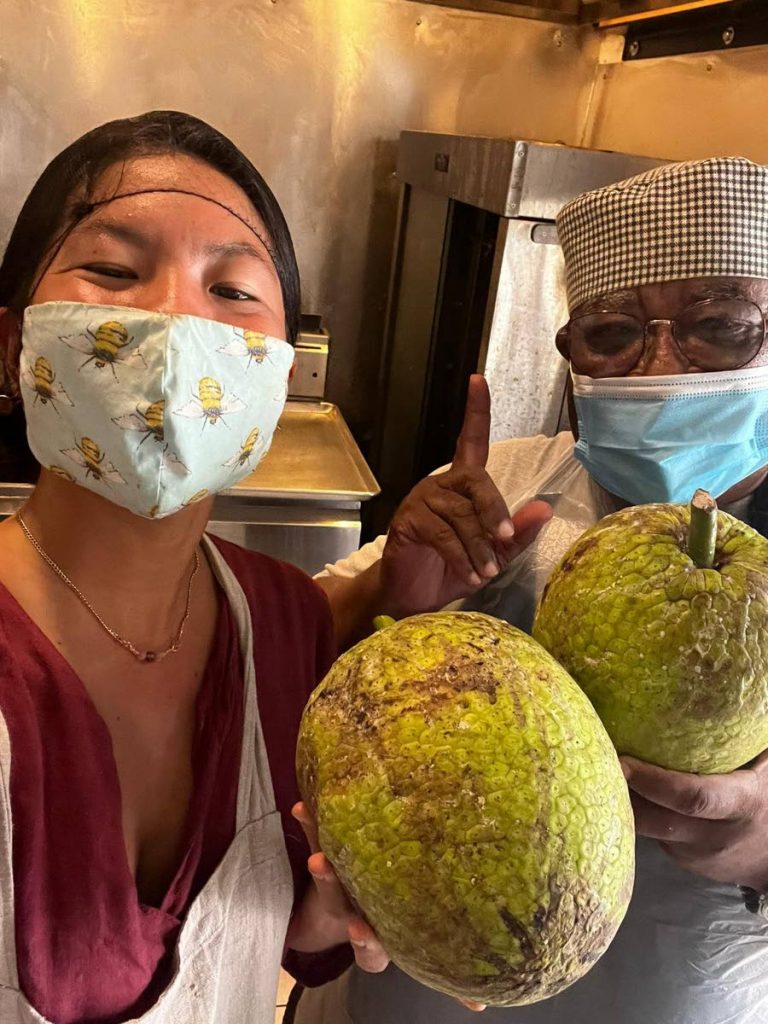
“Barbados has the goal of becoming carbon neutral by 2030,” she said. This was a commitment made in 2016 to reach 100 per cent renewable energy in this decade, and Barbados set the most ambitious climate resilient vision in the world. The Barbados Renewable Energy Association is anticipating nearly 300 megawatts of renewable capacity between 2019 and 2023. Recognising that 80 per cent of GDP is generated in high-risk areas such as beaches which are most vulnerable to natural disasters – hurricanes, flooding storm surges – mitigations against climate change include planting trees and growing food.
“Across the island there are projects leading the way, models of changed lifestyles and attitudes that are culturally relevant, community-based and financially sustainable. They are people-driven, collaborative and innovative systems that provide ecosystem services, offer new job opportunities and chart the way to regenerative tourism and land management. Best of all, they revitalise healthy food practices.”
This is Chen’s perspective at Slow Food Barbados, a chapter of Slow Food International, the world's largest grassroots food movement that believes in good, clean and fair food for all.
She said, “We reconnect Barbadians with the plants, animals, fertile soils and waters, while aiming to protect the heritage and culture that growing food makes possible. We focus on biodiversity, education and advocacy with programmes designed for access to good food. We work with farmers, fisherfolk, butchers, chefs, community leaders and schools across the island.
Slow Soup
“We run a Slow Soup programme, serving over 700 bowls of soup every week during the pandemic: youth, single mothers, elderly, amputees, recently unemployed and displaced, and those with physical and cognitive differences. We lead a Regenerative School Bus programme, where we use film and media to highlight the island's leading organic farms and create garden-based curricula for ten primary schools. We work with farmers and agribusiness leaders to inspire students about growing food, cooking and nutrition. We intend to reduce the high food import bill and the NCD epidemic in the Caribbean.”
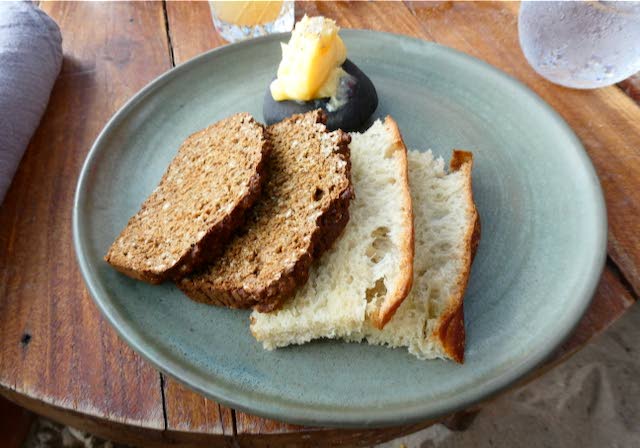
From a base in Speightstown, Slow Food Barbados is connected to People Environment Growth (PEG) farm managed by Paul Bourne who had an epiphany that with clean healthy food, he could regenerate his body away from the injury and pain he had endured. The PEG farm is located on 108 acres of the Easy Hall Plantation in St Joseph Parish. It is some of the highest land – 1,000 feet above sea level – with an edge at Hackleton’s Cliff overlooking the east coast.
“More than a biodynamic farm, PEG is home to Oink & Moo Meats, Beyond the Box Education and Farm House Cafe. It represents an integrated approach, farm to table, teaching by tasting. Some say it is the best meat on the island. The menu at the restaurant was created by a young couple, Nathan and Rebecca; the food is delicious, affordable and represents the best of every season. At Beyond the Box alternative school, students have a holistic approach to education. Campsites and tours offer eco-tourism experiences.”
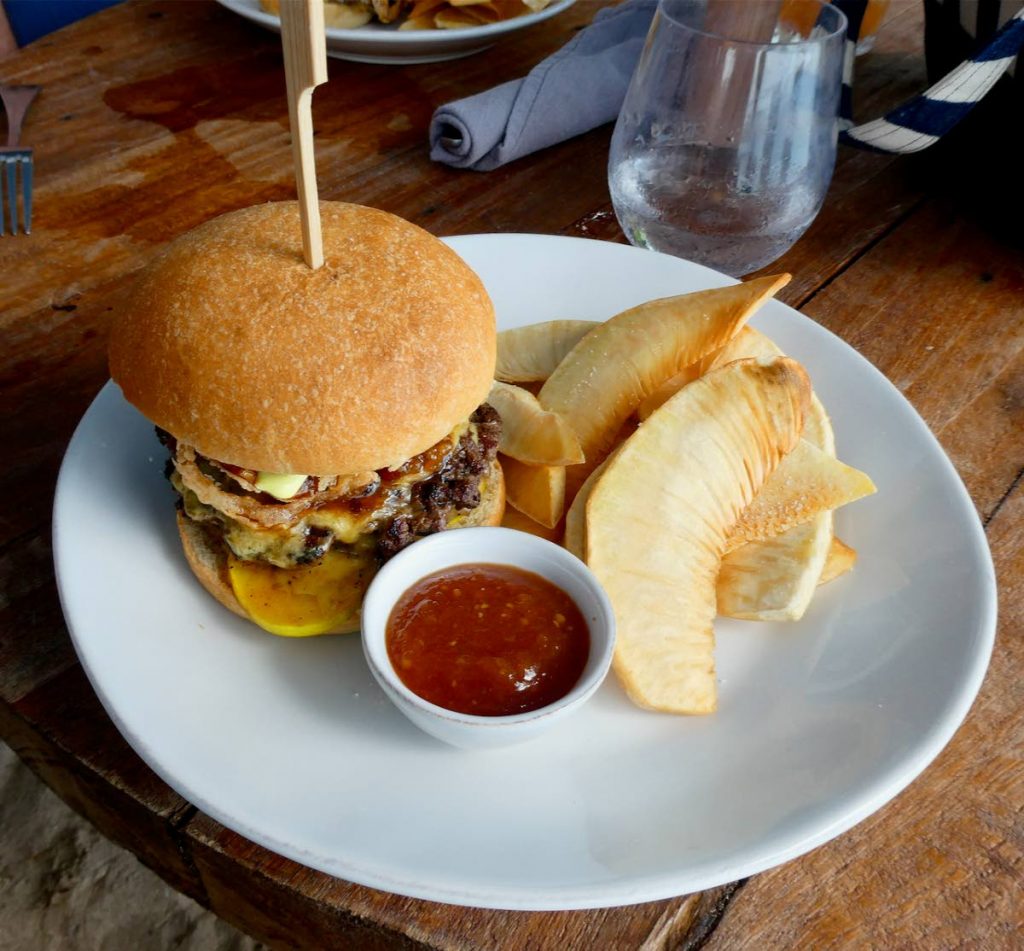
Chen connects easily to all aspects of regenerative agriculture, and leads a tour from the café, up the hill to a herd of glossy sleek cows, black belly sheep hiding in tall grass, chickens under their tractor and pigs in a muddy pool. She says that PEG provides the meat that goes into the Slow Soup, over 40,000 bowls served to date. She maps her year in Barbados back to the vision of the McNeels, Ian and Julie, who inherited the Walkers quarry in north east Barbados, providing silica sand for 50 years. Ian McNeel felt it was time “to transition from an extractive business model to a circular economy which supports…greater value for people, environment and business. We can no longer take small steps towards sustainability.”
Walkers Reserve
The Walkers Institute for Regenerative Research and Design is restoring the site of the quarry. Over the last few years, this has led to a state-of-the-art nursery for its One Tree Every Bajan reafforestation campaign, educational facilities for workshops and courses, bee hives and tours. There are key partnerships and research with public and private sector entities, ranging from conserving biodiversity, migratory birds, mangrove restoration and leatherback turtles nesting on the stunning Atlantic coast. As the sand quarry comes to its end, the landscape is transforming to a nature reserve: young trees, paths, green vistas. The initial phase included design work by TT permaculturist Erle Rahaman-Noronha.
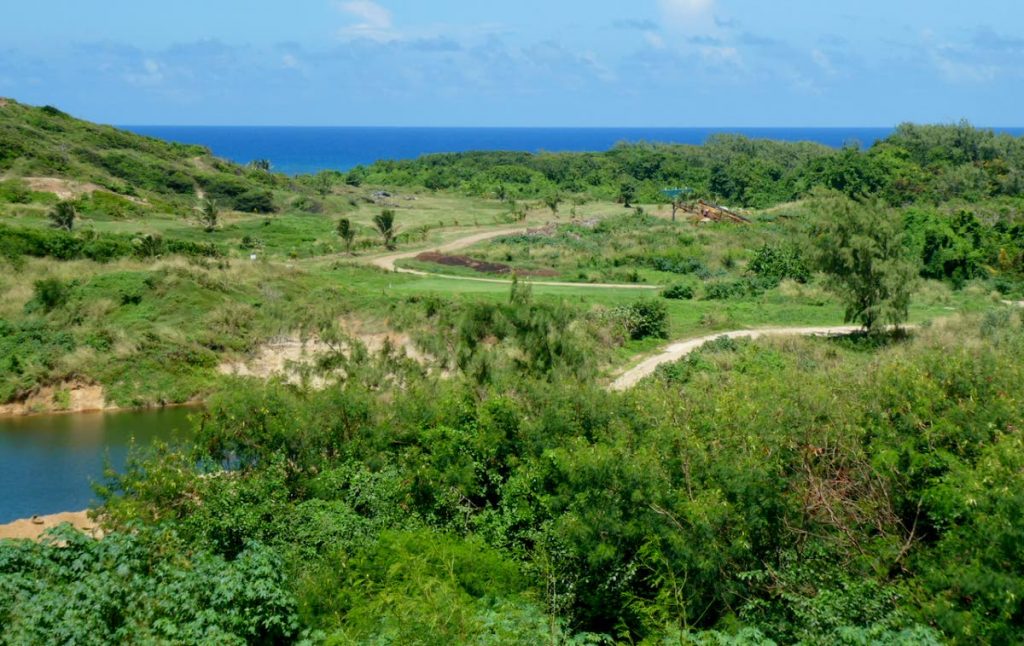
"It’s still a work in progress,” Chen said as she showed the nursery with scores of young plants: passion fruit, fat pork, breadfruit, avocado, sea grape and more.
Farm to table
“The ingredients from the reserve go towards the latest farm-to-table restaurant,” and Chen is pleased to introduce another restaurant in Speightstown. Founded by Ian and Julie McNeel, and English celebrity chef Sophie Michell, The Local & Co opened its doors on Queen Street last month. More than 80 per cent of its ingredients come from local farms. The steaks and burgers at lunch came from Oink & Moo; the lionfish just offshore. Chips of breadfruit, sweet potato and plantain delighted young eaters. Bread was paired with fresh churned butter from local cows. Its ethos is environmental conservation and a closed-loop economy. There are plans for an educational kitchen and taste workshops.
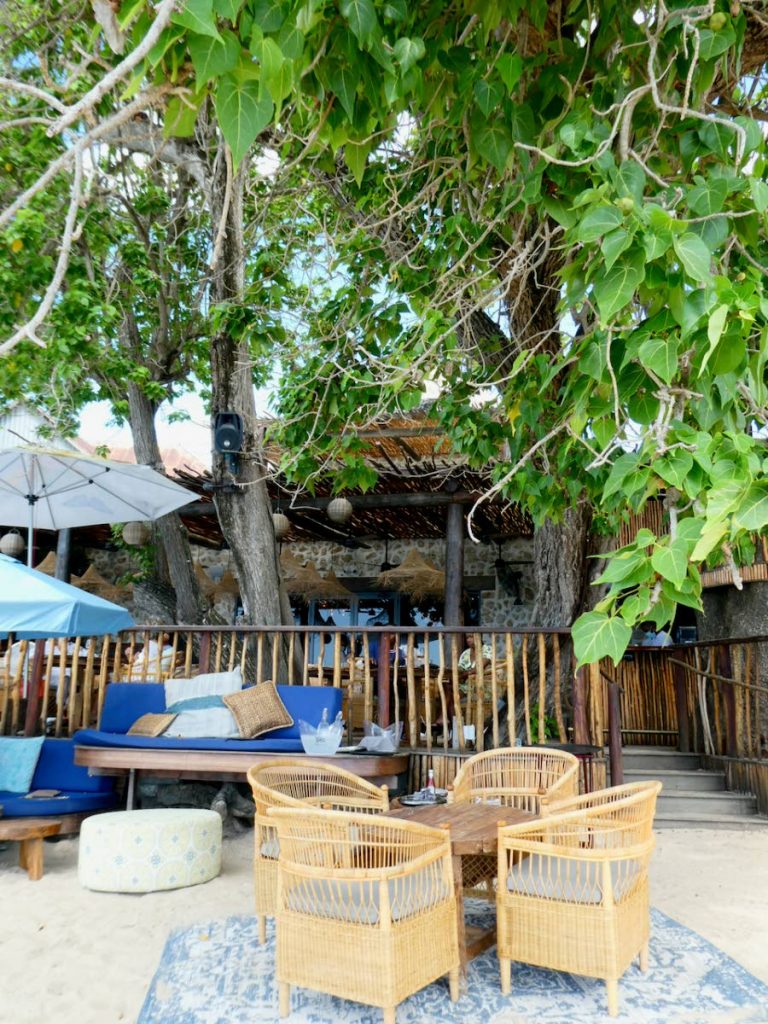
Down time for Chen takes her to pottery.
“On Sunday afternoons, I apprentice with Maggie Bell of Red Clay Pottery. We are currently making 1,000 monkey pots, traditional vessels made with clay from Chalky Mount, designed for keeping water cool. Maggie is a second generation master potter with Jamaican and Bajan roots, and over 50 years of experience. Her family is the commercial supplier of clay in Barbados; but the industry has been struck hard by the pandemic. She has become a chicken farmer selling eggs!”


Comments
"A Trini helps Barbados with food"